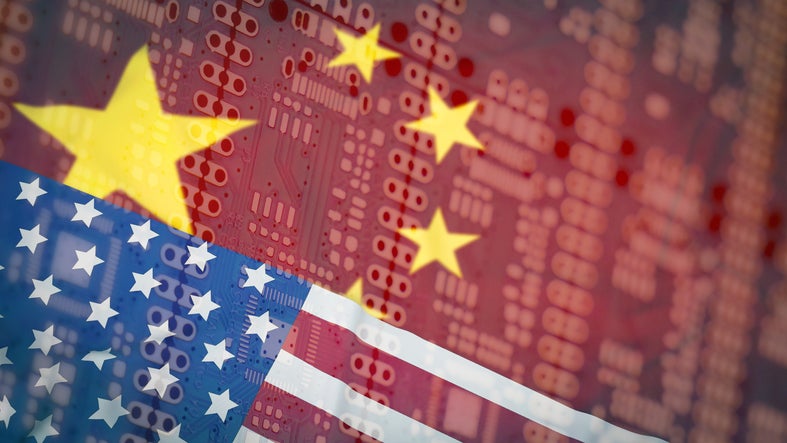
The US has called for cloud service providers, including Microsoft and Amazon, to reveal the IP addresses and names of any clients actively developing AI applications on their platforms.
In a proposal due to release on Monday (29 January), the Biden Administration has called for tech companies to create a budget for collecting the company’s details.
The US government has also called for cloud service providers to investigate for any suspicious activity from foreign clients.
The new rules, if implemented after the proposal, mean that the US could use the data provided by companies to locate and cut off key AI hosting servers for Chinese companies.
US companies will also carry the responsibility of collecting and analysing all of the customers using its cloud services and programs. The rules are similar to the financial industry which puts weight on companies knowing about their customers before providing services.
China’s innovation in AI has been a key concern for the Biden administration. The US has taken steps to curb the country’s development in the emerging technology by placing several restrictions on chip exports.
How well do you really know your competitors?
Access the most comprehensive Company Profiles on the market, powered by GlobalData. Save hours of research. Gain competitive edge.

Thank you!
Your download email will arrive shortly
Not ready to buy yet? Download a free sample
We are confident about the unique quality of our Company Profiles. However, we want you to make the most beneficial decision for your business, so we offer a free sample that you can download by submitting the below form
By GlobalDataHowever, despite increasingly stricter measures from the US, China has managed to make some significant advancements domestically.
US lawmakers have pressured President Joe Biden’s administration to place restrictions on US companies from working on an open-source chip technology regularly used in China. The move marks a major new step in the US-China tech war and another potential blow to cross-border collaboration in the tech industry.
RISC-V is a freely available technology that can be used as an essential piece in smartphone chips, AI chips and more. Based in Switzerland, the open standard set architecture is provided under royalty-free licenses and acts as a direct competitor to the products produced by UK based semiconductor manufacturer ARM Holdings.
Several US lawmakers have called for the Biden administration to place sanctions against US companies working with the technology.
The announcement of Huawei’s new Mate 60 Pro last year, its first 5G smartphone in nearly three years, defied the US sanction that was designed to limit the company’s production without Western help.
It was also recently reported that Chinese military bodies, universities and state-run AI research labs have been able to purchase NVIDIA semiconductors despite US export restrictions.
Reuters, which cited a review of tender documents, reported in early January that dozens of Chinese companies have bought and received NVIDIA semiconductors since the export bans were imposed.
Throughout 2023, US export bans have halted China’s access to key chips needed for AI development, such as graphics processing units.
GlobalData forecasts that the overall AI market will be worth $909bn by 2030, having grown at a compound annual growth rate (CAGR) of 35% between 2022 and 2030.
In the generative AI space, revenues are expected to grow from $1.8bn in 2022 to $33bn in 2027 at a CAGR of 80%.







